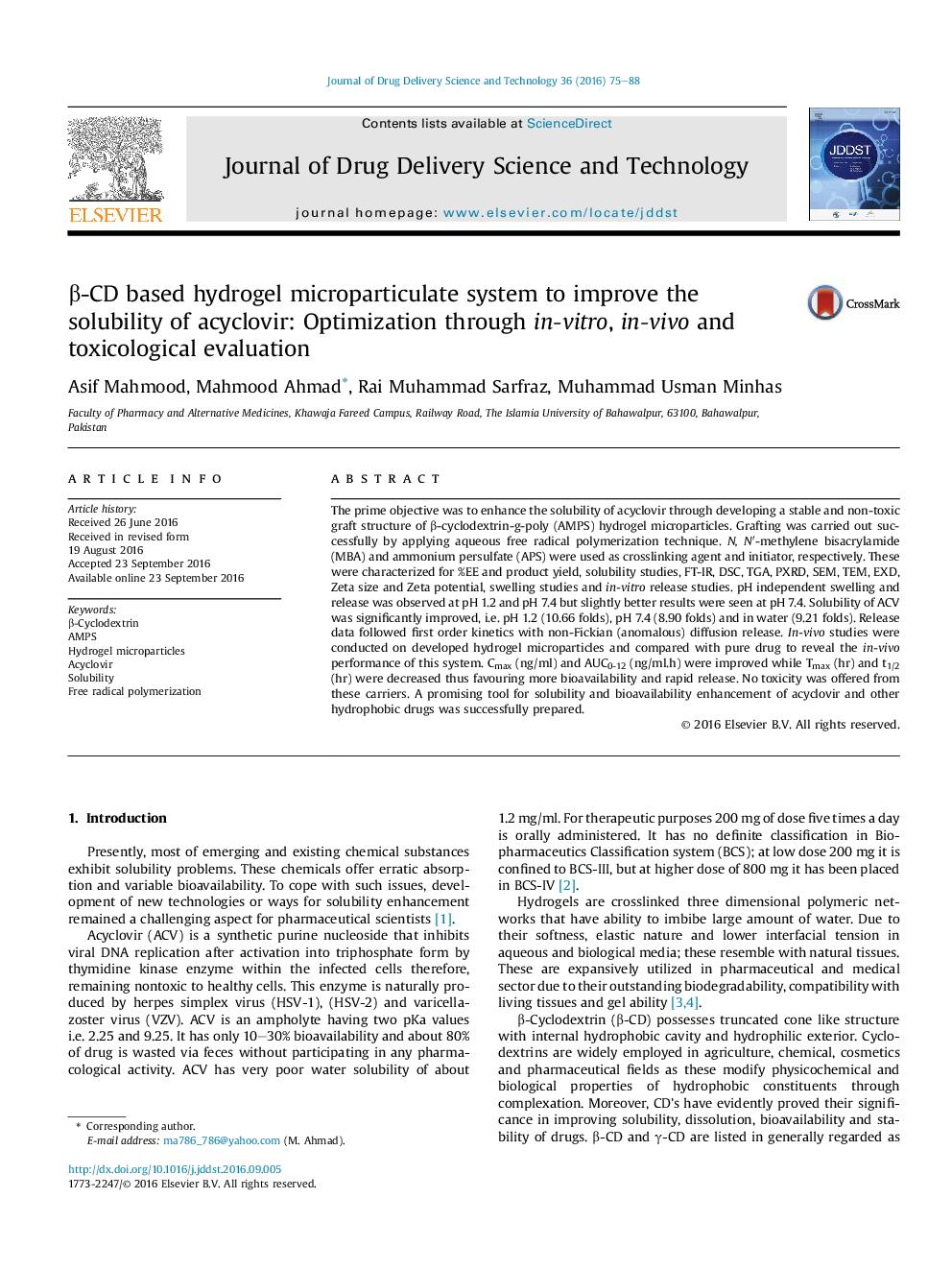| Article ID | Journal | Published Year | Pages | File Type |
|---|---|---|---|---|
| 5548235 | Journal of Drug Delivery Science and Technology | 2016 | 14 Pages |
The prime objective was to enhance the solubility of acyclovir through developing a stable and non-toxic graft structure of β-cyclodextrin-g-poly (AMPS) hydrogel microparticles. Grafting was carried out successfully by applying aqueous free radical polymerization technique. N, Nâ²-methylene bisacrylamide (MBA) and ammonium persulfate (APS) were used as crosslinking agent and initiator, respectively. These were characterized for %EE and product yield, solubility studies, FT-IR, DSC, TGA, PXRD, SEM, TEM, EXD, Zeta size and Zeta potential, swelling studies and in-vitro release studies. pH independent swelling and release was observed at pH 1.2 and pH 7.4 but slightly better results were seen at pH 7.4. Solubility of ACV was significantly improved, i.e. pH 1.2 (10.66 folds), pH 7.4 (8.90 folds) and in water (9.21 folds). Release data followed first order kinetics with non-Fickian (anomalous) diffusion release. In-vivo studies were conducted on developed hydrogel microparticles and compared with pure drug to reveal the in-vivo performance of this system. Cmax (ng/ml) and AUC0-12 (ng/ml.h) were improved while Tmax (hr) and t1/2 (hr) were decreased thus favouring more bioavailability and rapid release. No toxicity was offered from these carriers. A promising tool for solubility and bioavailability enhancement of acyclovir and other hydrophobic drugs was successfully prepared.
Graphical abstractDownload full-size image
